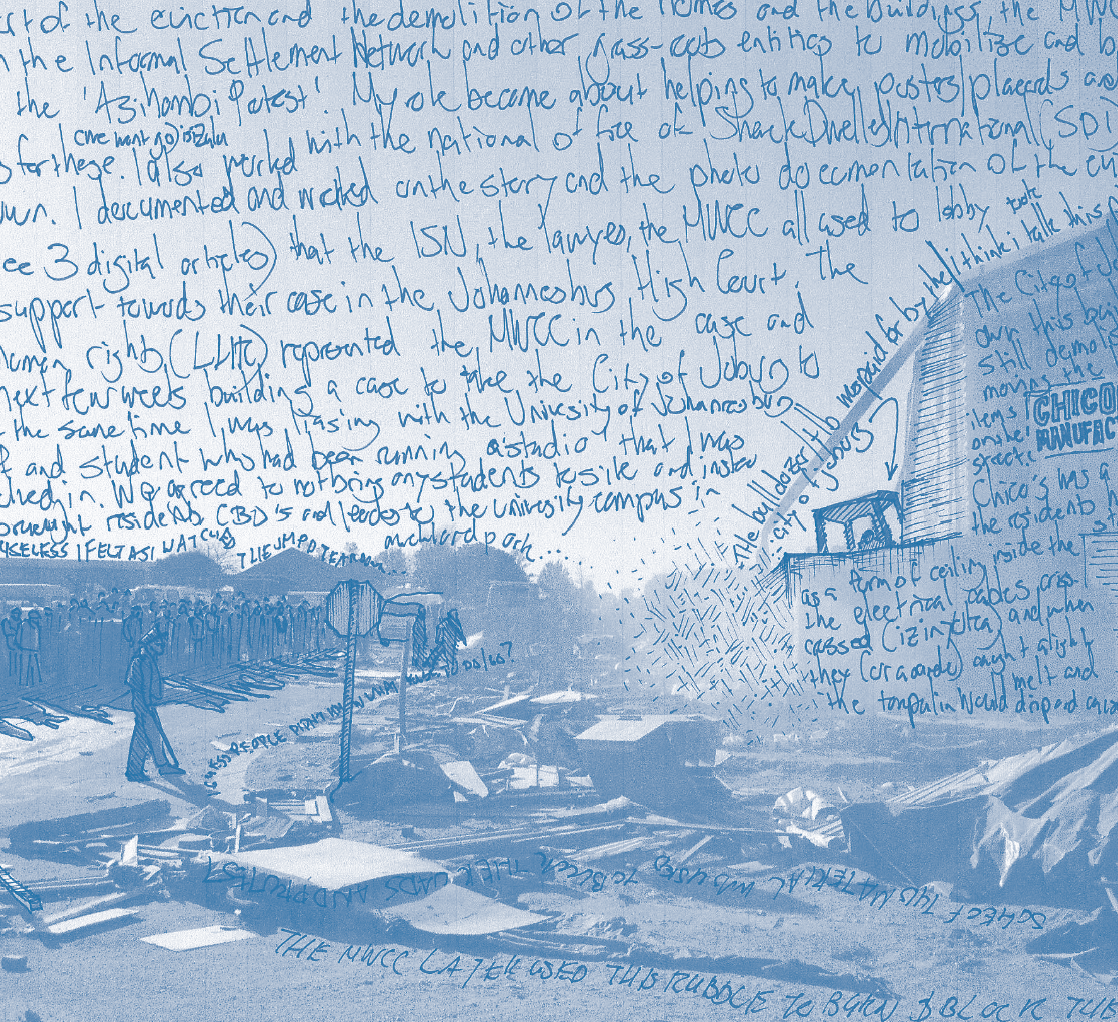NAVITAGING THE WHAT-WHAT: STAYING WITH MY TROUBLE
Jhono Bennett
Johannesburg, South Africa
Jhono Bennett
Johannesburg, South Africa

Navigating the What-What: Staying with my Trouble - PDF
‘South African cities remain among the most unequal urban areas in the world. Amidst the city-making forces that led to this condition, those implemented through the spatial form were not an impassive by-product of centuries of segregated development, but were conceptualised, drawn, designed and implemented by built environment practitioners - individual spatial designers who were politically, socially, technically and ethically situated in South Africa. The tacit logics of their designed built form continue to play a significant role in how these inequalities spatially persist decades after social and political reform.
This observation is framed to point out an important, and under-explored inter-scalar dimension of spatial practice and agency that exist between the individual practitioner, the discipline and the socio-spatial systems that require more situated and critical approach to city-orientated research. These inter-scalar and inter-generational legacies of the colonial and apartheid socio-spatial system remain firmly embedded in the spirit of the legal, professional, and disciplinary systems of city-making and depending on one’s own historical location, these aspects of self and other manifest very differently in both personal and practitioner engagements. As a result, there exists a demographical dilemma, an incommensurable dimension of paradoxicity, for those of us working at the practitioner scale through such inter-scalar and positional dynamics of spatial design in post-Apartheid South Africa that remains largely unspoken or documented.
This paper will attempt to frame a partial perspective on this paradoxical dilemma, while acknowledging important incommensurable contradictions through a discussion on research audience, positional moves and ethics-in-action. The paper will do so through a multi-voiced designerly structuring of the document format that will share the initial creative findings revealed from a practice-orientated critical reflection on my own work in Johannesburg through a Site Writing modality that has brought these dynamics, the what-what, to the surface.’
Jhono Bennett